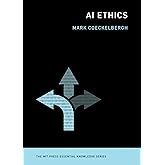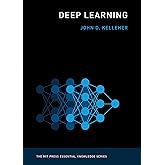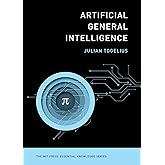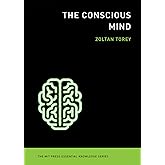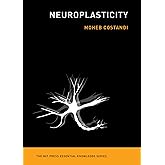
Amazon Prime Free Trial
FREE Delivery is available to Prime members. To join, select "Try Amazon Prime and start saving today with FREE Delivery" below the Add to Cart button and confirm your Prime free trial.
Amazon Prime members enjoy:- Cardmembers earn 5% Back at Amazon.com with a Prime Credit Card.
- Unlimited FREE Prime delivery
- Streaming of thousands of movies and TV shows with limited ads on Prime Video.
- A Kindle book to borrow for free each month - with no due dates
- Listen to over 2 million songs and hundreds of playlists
Important: Your credit card will NOT be charged when you start your free trial or if you cancel during the trial period. If you're happy with Amazon Prime, do nothing. At the end of the free trial, your membership will automatically upgrade to a monthly membership.
Buy new:
-25% $14.17$14.17
Ships from: Amazon.com Sold by: Amazon.com
Save with Used - Very Good
$11.12$11.12
Ships from: Amazon Sold by: Jenson Books Inc

Download the free Kindle app and start reading Kindle books instantly on your smartphone, tablet, or computer - no Kindle device required.
Read instantly on your browser with Kindle for Web.
Using your mobile phone camera - scan the code below and download the Kindle app.



 Audible sample
Audible sample Follow the author
OK
The Technological Singularity (The MIT Press Essential Knowledge series) Paperback – August 7, 2015
Purchase options and add-ons
The idea that human history is approaching a “singularity”—that ordinary humans will someday be overtaken by artificially intelligent machines or cognitively enhanced biological intelligence, or both—has moved from the realm of science fiction to serious debate. Some singularity theorists predict that if the field of artificial intelligence (AI) continues to develop at its current dizzying rate, the singularity could come about in the middle of the present century. Murray Shanahan offers an introduction to the idea of the singularity and considers the ramifications of such a potentially seismic event.
Shanahan's aim is not to make predictions but rather to investigate a range of scenarios. Whether we believe that singularity is near or far, likely or impossible, apocalypse or utopia, the very idea raises crucial philosophical and pragmatic questions, forcing us to think seriously about what we want as a species.
Shanahan describes technological advances in AI, both biologically inspired and engineered from scratch. Once human-level AI—theoretically possible, but difficult to accomplish—has been achieved, he explains, the transition to superintelligent AI could be very rapid. Shanahan considers what the existence of superintelligent machines could mean for such matters as personhood, responsibility, rights, and identity. Some superhuman AI agents might be created to benefit humankind; some might go rogue. (Is Siri the template, or HAL?) The singularity presents both an existential threat to humanity and an existential opportunity for humanity to transcend its limitations. Shanahan makes it clear that we need to imagine both possibilities if we want to bring about the better outcome.
- Print length272 pages
- LanguageEnglish
- PublisherThe MIT Press
- Publication dateAugust 7, 2015
- Dimensions5 x 0.75 x 7 inches
- ISBN-100262527804
- ISBN-13978-0262527804
Book recommendations, author interviews, editors' picks, and more. Read it now
Frequently bought together
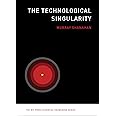
Customers who viewed this item also viewed
Editorial Reviews
Review
Shanahan's presentation is succinct, comprehensive and commendably accessible for such a complex subject.
—E & T: Engineering & Technology Magazine—About the Author
Product details
- Publisher : The MIT Press; 1st edition (August 7, 2015)
- Language : English
- Paperback : 272 pages
- ISBN-10 : 0262527804
- ISBN-13 : 978-0262527804
- Item Weight : 2.31 pounds
- Dimensions : 5 x 0.75 x 7 inches
- Best Sellers Rank: #847,663 in Books (See Top 100 in Books)
- #676 in Social Aspects of Technology
- #1,628 in Artificial Intelligence & Semantics
- #15,919 in Engineering (Books)
- Customer Reviews:
About the author

Murray Shanahan is a Professor of Cognitive Robotics at Imperial College London, in the Department of Computing. He researches artificial intelligence, robotics, and cognitive science.
Bio from Wikipedia, the free encyclopedia.
Customer reviews
Customer Reviews, including Product Star Ratings help customers to learn more about the product and decide whether it is the right product for them.
To calculate the overall star rating and percentage breakdown by star, we don’t use a simple average. Instead, our system considers things like how recent a review is and if the reviewer bought the item on Amazon. It also analyzed reviews to verify trustworthiness.
Learn more how customers reviews work on AmazonCustomers say
Customers find the book insightful and interesting, covering philosophical questions about AI. They describe it as an engaging read that covers a wide range of topics in an accessible manner. Readers appreciate the clear writing style and concise format.
AI-generated from the text of customer reviews
Customers find the book insightful and interesting. It provides an overview of the topic, including philosophical questions, concepts, and speculation. The author displays a wide knowledge base in both technical and philosophical areas. The book covers a large area on the subject and highlights the power of the human mind.
"...a priori bias against or in favor of AI but a thorough examination of the many possibilities it entails...." Read more
"...It was very entertaining, well-written, and thought-provoking...." Read more
"...The author summarises the history of machine intelligence, describes two different way of future development (brain emulation, engineering AI),..." Read more
"...Stopping short of absolute predictions, he describes the processes of brain emulation (i.e., copying the brain) and neural simulation...." Read more
Customers enjoyed reading the book. They found it informative, entertaining, and thought-provoking. The book is described as a quick, approachable read that covers a lot of ground on the subject.
"...The best book I have read so far on intelligence explosion and the singularity." Read more
"...The field is very far away from AGI. Still, it was an entertaining and well-written book, so I'll leave it at 4 stars." Read more
"...the next half-millenium or so, this is an excellent, quick, informative read." Read more
"An exceptionally approachable book that covers massive ground on the subject. It is fascinating, humbling, awe inspiring, and terrifying...." Read more
Customers find the book readable and clear. They say it's written in a simple, understandable way that keeps things accessible to non-experts.
"...Well written and fairly easy to read even for the not technologically inclined...." Read more
"This is a nicely written short book about an event that's a little scary but which could happen, according to some, but not all, experts in the..." Read more
"...In addition, he keeps things at a level intelligible and accessible to people who are not specialists in AI...." Read more
"I found this book remarkably readable - whether from impressive writing skills of the author or the skill of a brilliant editor, it flowed..." Read more
Reviews with images
Where are we going?
Top reviews from the United States
There was a problem filtering reviews right now. Please try again later.
- Reviewed in the United States on March 11, 2018A great and insightful book about the nature and possibilities of AI. No manifest a priori bias against or in favor of AI but a thorough examination of the many possibilities it entails. The author displays a great breadth of knowledge into both technical and philosophical matters. Well written and fairly easy to read even for the not technologically inclined. The best book I have read so far on intelligence explosion and the singularity.
- Reviewed in the United States on January 31, 2017This is a nicely written short book about an event that's a little scary but which could happen, according to some, but not all, experts in the field of AI -- the idea that AI could "run away" and become arbitrarily smart (e.g. if they started to engineer and modify themselves). I picked up this book after seeing a TV interview of Bill Gates, who said (paraphrasing) that he thinks there is a very good chance of better-than-human AI being achieved in about 50 years. "They'll be a lot smarter than us", I remember him saying. That made me think it might not just be the stuff of science fiction and I started my hunt for books on AI. I picked this one (and another one) because it had good reviews, was brief, and was published by the MIT Press. It was very entertaining, well-written, and thought-provoking. I felt that I learned a lot about both the latest technology and the moral and social issues in a compact book that's quick to read.
Leave it to humans with our supposedly superior brains to find new and more efficient ways to harm ourselves. In primitive times we discovered fire, then later guns, then the atomic bomb, and now the Terminator ? Well, let's hope we can control it and make it benign, if it happens.
Edit (May 2020) As I've been learning more about AI lately, I've come to realize that most of the people who are actually working in this field find this idea of a singularity far-fetched, basically science fiction, and based on deep misunderstandings. The field is very far away from AGI. Still, it was an entertaining and well-written book, so I'll leave it at 4 stars.
- Reviewed in the United States on December 25, 2020Why should read this book:
1) In this subject you can find many theory books. This book also contains conclusions, however, these are based on research results and expected developments.
2) The author summarises the history of machine intelligence, describes two different way of future development (brain emulation, engineering AI), why is superintelligence is possible, which kind of consciousness is conceivable, and finally the impact of IA.
3) I was quite sceptic related to TS. However, after reading this book I have a realistic view which kind of serious progress is being made during the last decades. You should read a lot of books, studies to have such a broad vision.
4) The author has saved you a lot of time and energy, so if you want to delve into the subject, you should start with this book.
- Reviewed in the United States on February 23, 2020The author discusses a number of topics bearing on the feasibility and consequences of continued progress in AI. We have seen fairly significant advances, but always highly restricted to specialized applications, such as playing Go. The series of brilliant successes in weak AI, as opposed to AI at a human or even beyond, superintelligent, level, over the past 40 or so years has aroused some concern. There are indeed, some thorny and troubling aspects about this. Shanahan is looking to the far future, so this book is not related to much we are likely to see within the next twenty or thirty years. He writes in a simple, very clear, very understandable way. In addition, he keeps things at a level intelligible and accessible to people who are not specialists in AI. His philosophical and speculative style takes him into excursions that always remain superficial and overly general. He, therefore, opens himself up to serious counterarguments at almost every step. So I think that if you want something deeply insightful, this overview is the wrong place. On the other hand, to get a taste for some of the important, long-term consequences, of significant and continuing progress in AI, this book can be recommended. I had to be rather patient with my reading, because his speculative explorations are so easily questioned, and he is avoiding numerous thorny elements along the road to superintelligence. On the other hand, if you have an interest and tolerance for rather theoretical and airy speculation on extremely important matters that may or may not arise for us humans within the next half-millenium or so, this is an excellent, quick, informative read.
Top reviews from other countries
-
 EDGARGQZReviewed in Mexico on November 12, 2018
EDGARGQZReviewed in Mexico on November 12, 20185.0 out of 5 stars Perfect
Excelente libro.
 Amazon CustomerReviewed in India on April 12, 2020
Amazon CustomerReviewed in India on April 12, 20203.0 out of 5 stars Moderate
Highly speculative and very imaginative ideas about artificial intelligence. Some places read like science fiction. Not recommended if you want to learn about technology.
 Julianna ClarkeReviewed in Canada on September 6, 2017
Julianna ClarkeReviewed in Canada on September 6, 20175.0 out of 5 stars Five Stars
Good reading for introductory topics in IT.
 Andrew BriceReviewed in Australia on December 22, 2024
Andrew BriceReviewed in Australia on December 22, 20245.0 out of 5 stars Incredible
Amazing how a book written so long ago still holds in todays developing A.I world, cant wait for his next edition
-
 Massimo LavagniniReviewed in Italy on August 4, 2017
Massimo LavagniniReviewed in Italy on August 4, 20173.0 out of 5 stars Too much repetitive
I was expecting much more from the book... unfortunately it is just repeating the same concepts over and over. It gives some very basic understanding of what is going to mean a tech singularity in the future, but I guess I could have it even without reading the book. As for the philosophical concepts about technology is much more rewarding 'Heidegger's Question concerning Technology'.







